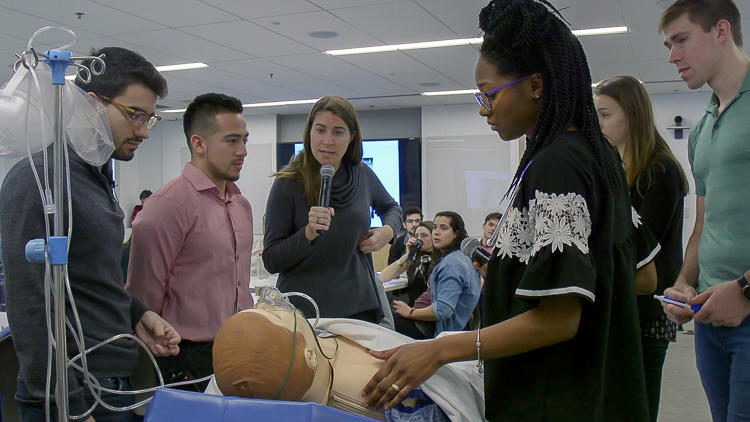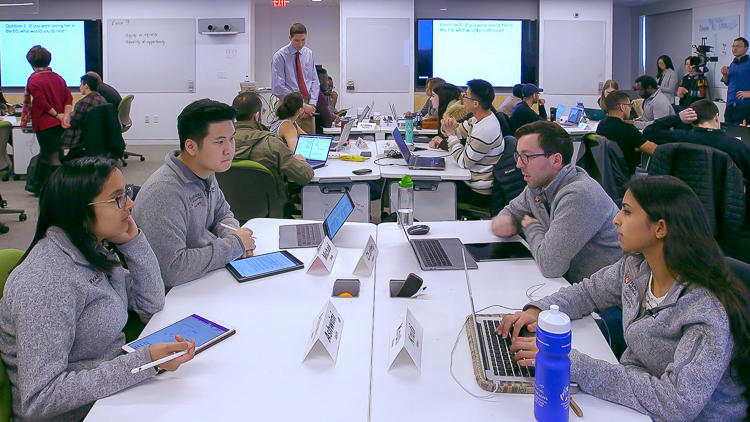As the world becomes increasingly interconnected, the future of work will become increasingly collaborative. As he explains in this video, this is what underpins Eric Mazur’s approach to team-based learning: a belief that instructors need to help students learn how to work together because this is how they will succeed once they leave our classrooms.
Using Team-Based Learning to Prepare Students for the Real World
Instructor
Eric Mazur, Balkanski Professor of Physics and Applied Physics
Student Group
Undergraduate
School
School of Engineering and Applied Sciences
Course
AP50 Physics as a Foundation for Science and Engineering
Group Size
60 students
- Remember that there’s a difference between simply putting students into teams and helping students learn how to work in teams. Aim to scaffold team-based learning experiences so that students can develop the skills to support each other in their learning.
- Make sure you have a clear purpose for putting students into teams and communicate this rationale to students directly. Students may exercise resistance to team-based learning simply because they don’t feel like it is important or will lead to an enhancement in the work.
- Designing generative, challenging problems for your students. Problems should be hard enough to foster interdependence (i.e., no single person can solve it alone) but achievable enough that students persist rather than shut down.
- In addition to mastery of content, graduates in science, technology, engineering and mathematics also need to develop professional skills to be successful in an increasingly collaborative workforce (Kulturel-Konak, et al., 2013).
- Shuman and colleagues discuss the role of professional skills in engineering, such as teamwork and working in interdisciplinary teams. They describe how professional skills have become central and provide suggestions about how to teach and assess professional skills (2005).
- Allen and colleagues describe the use of complex problems, with relevance to real-world problems, to engage and motivate students in undergraduate science classrooms (1996).
- Vanderbilt University’s Center for Teaching provides a structure for team-based learning and an explanation of the purpose of each of the stages in a team-based learning module.
- Iowa State University's Center for Excellence in Learning and Teaching provides an overview of team-based learning and reflections about the approach from instructors and students.




